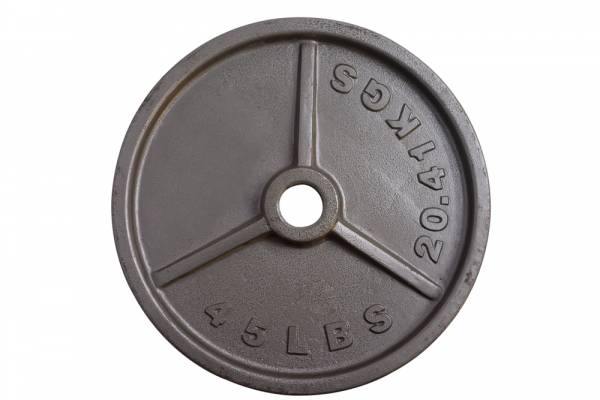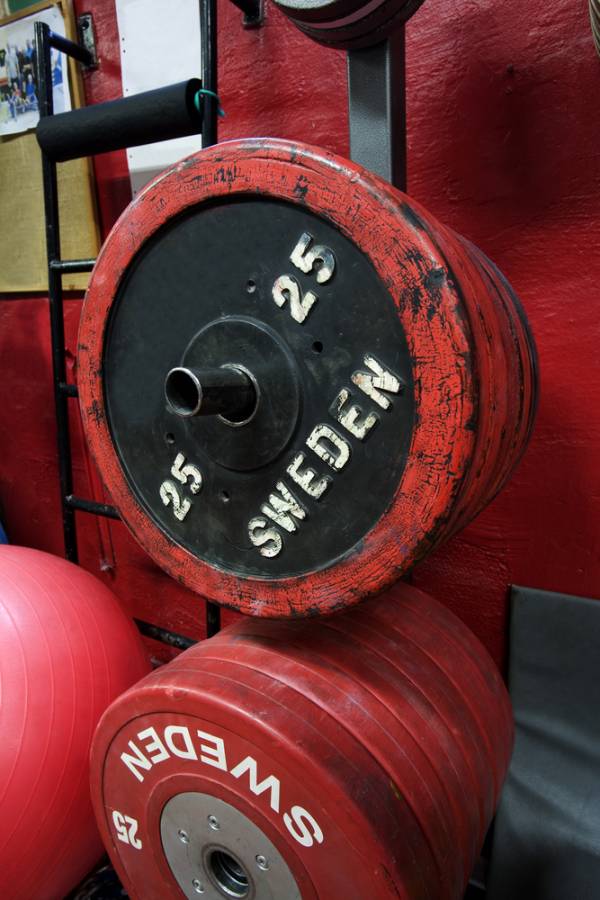I made a huge mistake. Sometimes a friend, even if they are your favorite person, can lead you down a road that causes you to pull your hair out. This happened the other night.
I was coerced to start stalking the websites of a number of CrossFit and other clubs around the country that post what their members are doing in their WODs (Workouts of the Day). Sometimes I was impressed, if for no other reason than the sheer amount of work these people do. (There is no doubt that CrossFitters like to kill themselves with work.)
But I was also dismayed.
How was it possible that grown-assed men who have been doing CrossFit for over three years were struggling to squat sets of five reps with a barbell loaded at only 155lbs? I’m not asking these guys to do what my lifter Brandon can do: seven reps at double bodyweight. That is not realistic for most of us. I also understand there are those folk out there who were blessed with the worst genes for strength. If people look at you and think, “Boy, that guy must be a mathematician,” then maybe a 155lb squat for five reps really is a true accomplishment, and I’ll be the first to congratulate you.
However, mathematician men like this are outliers. The average weight lifted after three years of barbell and free weight training should be far higher. There is simply no excuse for this level of weakness for most men. If you are working toward strength goals and you have gone years without getting significantly stronger, then there are only three possibilities:
- You are an advanced lifter who is nearing genetic maximum.
- Your life has been getting in the way of your workouts. (This is a reasonable excuse, it happens to the best of us.)
- Your routine ain’t workin’.
I’m going to assume number three is the scenario for the purposes of this article.
It Isn’t Just CrossFit
I don’t want to pick on CrossFit too much – they are just the example. I could just as easily pick on nearly every dude and dudette in this country who is lifting weights on a regular basis. CrossFit is simply an easy target because they post everything on the Internet for me to see. They make for a good case study that proves lots of hard work isn’t enough. You need lots of the RIGHT hard work.
I have never met a CrossFitter who didn’t want to get stronger. So let’s stick with our example, accepting that there are plenty of CrossFit clubs and coaches getting their athletes very strong, and that there are even CrossFit members who could care less about being stronger.
Why Strength is Extremely Important for CrossFit
 I have a new member of my gym, Nigel. He is a CrossFit competitor who is extremely athletic, has been doing CrossFit for a long time, and wants to take his game to the next level. We talked the other day about getting his deadlift up. He already can deadlift over 425lbs. But that simply isn’t good enough. At the recent competition he did, the workout involved 375lb deadlifts for REPS. Let’s do the math:
I have a new member of my gym, Nigel. He is a CrossFit competitor who is extremely athletic, has been doing CrossFit for a long time, and wants to take his game to the next level. We talked the other day about getting his deadlift up. He already can deadlift over 425lbs. But that simply isn’t good enough. At the recent competition he did, the workout involved 375lb deadlifts for REPS. Let’s do the math:
375/425 = 88% (ish)
That is, he had to lift 88% of his maximum deadlift for multiple reps. Let me tell you, that is hard. Now, imagine if he increased his 1RM (one rep max) deadlift to 600lbs:
375/600 = 62% (ish)
Now he is only pulling 62% of his maximum! Much, much easier to do for reps.
I’ve discussed in a previous article that CrossFit is a lot like the sport of strongman. It is just the endurance sport version. But don’t let that fool you into thinking strength isn’t highly important for the reason above. Sure, you aren’t pulling 800lbs for reps. But 375 is still a big number.
Strength Is a Skill
It is better to think of gaining strength as more similar to gaining some type of skill – like playing piano – than it is to gaining endurance. Imagine if you were trying to learn how to play piano, but the only time you practiced was as a part of your CrossFit WODs.
5 rounds for time:
20 Burpees
15 Pull Ups
10 Double Unders
5 Piano Drills
That sounds ridiculous to you, I know. Similarly, saying the only time you squat is during your WODs sounds just as ridiculous to me. You need to be rested and ready to be at your best for every “set” of piano practice. The same is true for every set of strength work.
You need a dedicated plan of attack to become a great piano player – one that is the opposite of random. The same is true for strength gaining. Planning, consistency in following the plan, and being in the right state (not exhausted) while going for your heavy sets are a few of the key concepts I teach to the CrossFit athletes I coach.
But there is one lesson that is far more important than all the rest.
The Ultimate Secret Of Strength Training Revealed!
I’m going to tell you the sneakiest of secrets to gaining strength, but I want to make sure you don’t tell anyone else. It’s a secret and it should stay that way. Can I trust you?
To get stronger, you must add weight to the bar.
 Now that I’ve said it, I’m going to let you fawn over me and bask in the glory of my magnificence. How profound a thought, this notion of progressive resistance, progressively adding weight against which you resist. I made this up. I am going to copyright it and make millions.
Now that I’ve said it, I’m going to let you fawn over me and bask in the glory of my magnificence. How profound a thought, this notion of progressive resistance, progressively adding weight against which you resist. I made this up. I am going to copyright it and make millions.
All joking aside, it is amazing this basic fact, THE fact of weight lifting, of strength training of any kind, is completely lost in the clutter of most everyone’s workouts and workout programs. You must add weight to the bar. You must give your body something to adapt to. Without a reason, the body will never get stronger. It is up to you to provide the reason. And, of course, that reason should be heavy.
I feel as though I have fallen into a rant. For that I apologize, but if you learn only one thing let it be to add weight to the bar as often as humanly possible. If you learn a second lesson it is to find a good plan of attack, random ain’t gonna cut it. And if you can hold in your mind a third lesson, it is to be rested before every set – strength training is almost the opposite of conditioning training.
There are exceptions to these rules, but let us not get bogged down by them. Getting lost in superfluous details should be avoided. Implementation is key to everything, and sticking with the basics and working them hard really does work. Don’t let the simplicity fool you.
Now, go lift something heavier than you did yesterday.
Photos courtesy of Shutterstock.






